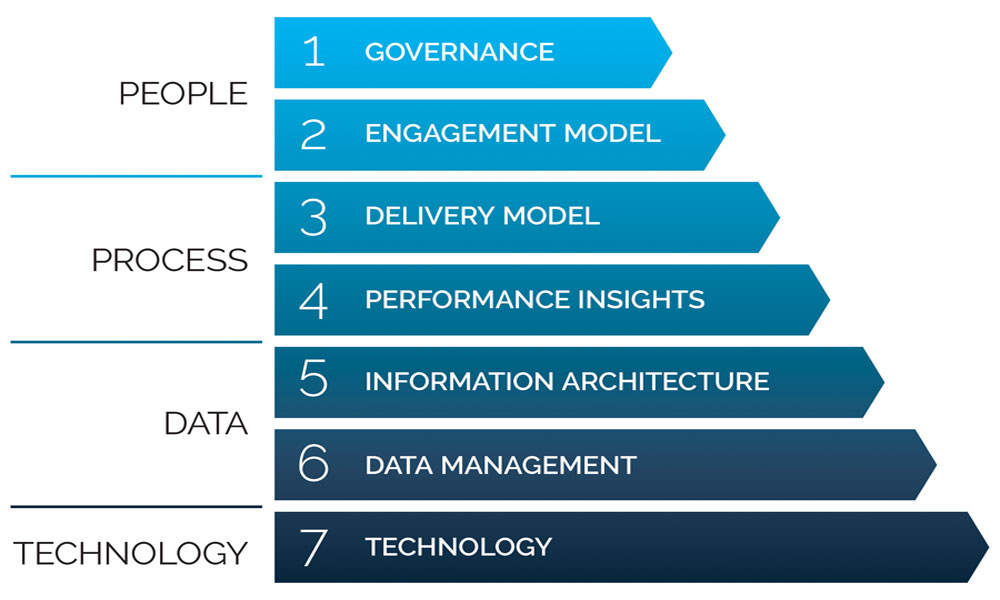When an organisation asks Stellar to provide a Data Analytics solution, it won’t be long before they start to learn about Stellar’s Seven Essentials. That’s the model used by Stellar consultants to ensure each project starts right and stays on course.
In this series of articles, we explore the Seven Essentials, one by one.
 By Grant Broadbent, Managing Director
By Grant Broadbent, Managing Director
Consider a situation where a bridge is to be built across a harbour or a river. No sane individual would dream of committing the resources to build a bridge without an identified need, an agreed location, a potential payback and someone who is prepared to pay for it and take ownership of the finished product to realise the payback.
Yet staggeringly, this is how many BI programmes are initiated: “let’s build a gold-plated bridge using the latest technologies, open it and wait for the authorities to build roads to it, even though they haven’t been consulted. It’s a wonderful bridge – just look at the technology we’ve used. People are bound to love it and use it … right?”
Alas, we see this situation many times in some of New Zealand’s largest, most-respected corporations. Just recently I had a meeting with a representative of a large commercial organisation to talk about their BI programme. They launched an in-house BI initiative about 3 years ago, spent several million dollars, but finally had to acknowledge that the initiative failed.
Yes, it was a gold-plated bridge: it cost way more than they thought it would, it was in the wrong place and the owner bailed out of the deal before it was finished. It was by all measures a total disaster, yet were they concerned? Not a whit! They’ve decided to buy more new technology, set up a new in-house programme and spend a few more million bucks doing the same thing with their shiny new tools, using leadership that has never done this before. And they still can’t express how and when the payback will occur.
I’ll give it another two or three years before they reset the programme again. It’s a waste of time and resources – and it’s doomed to fail.
What’s missing in this scenario is strong Governance and proper Engagement. BI Governance, as its name suggests, is the ownership and sponsorship of a BI Programme. The sponsor and owner must be able to answer the “what’s in it for me” question, right from the get-go. These people need to know exactly why the BI programme exists, what it’s going to yield, and when.
In very simple terms, if a BI programme is worth spending money on, it must yield a performance improvement or satisfy a specific requirement – be it regulatory, operational or otherwise. It must have clear criteria for success that are understood by all stakeholders – especially the owner and sponsor.
It’s not good enough to justify a massive outlay on BI with a business case that says: “The programme will enhance our decision-making process by providing more insight from our data”. This is the desired state, not a positive business case.
A business case needs to relate to a strategic objective or a specific requirement; for example, “The BI programme will reduce our claims processing cost by five per cent” or “The BI programme will fully satisfy the Commerce Commission’s specific mandatory quantitative information demands”.
Ongoing engagement of sponsors, owners and other key stakeholders is critical to the success of BI programmes. For this reason, Stellar’s Engagement Model is inextricably intertwined with Governance.
Strong BI Governance, by way of a proven Engagement Model, will exercise leadership, contribute at the appropriate level, track progress, and mitigate risk. Then they will be able to truly celebrate success.
First published: 23 November 2015





